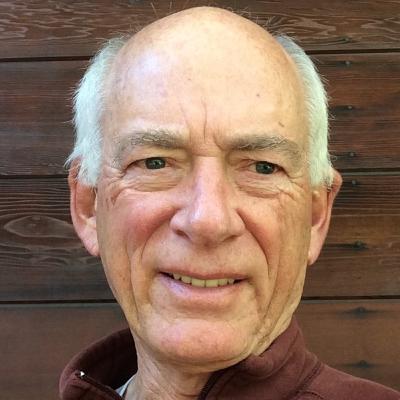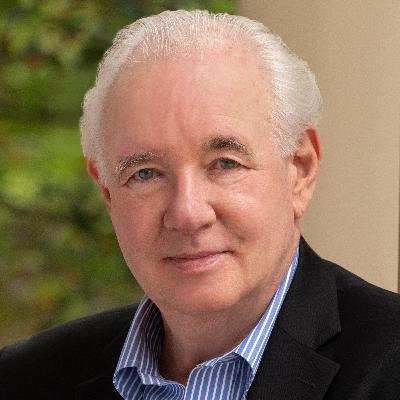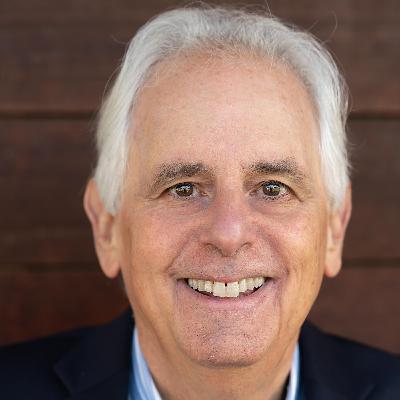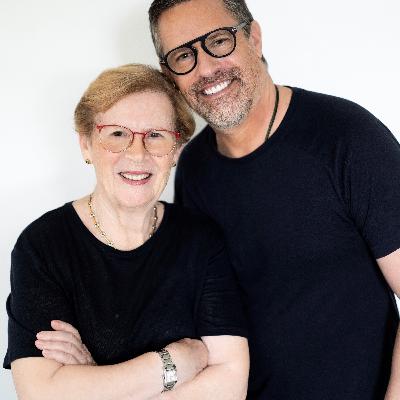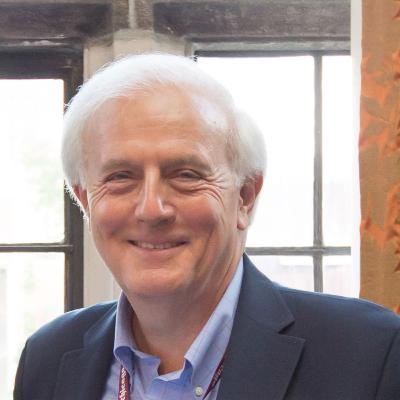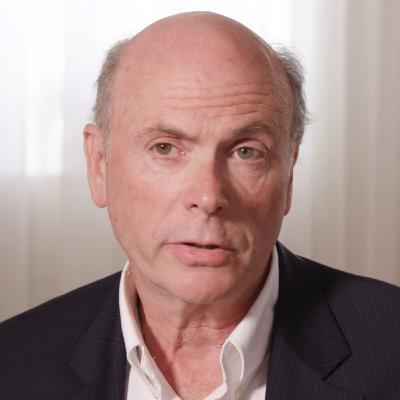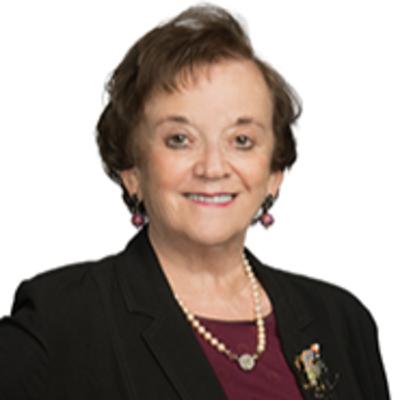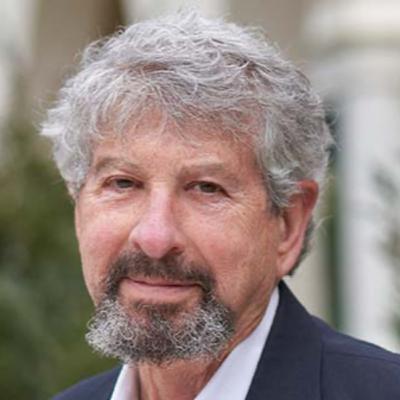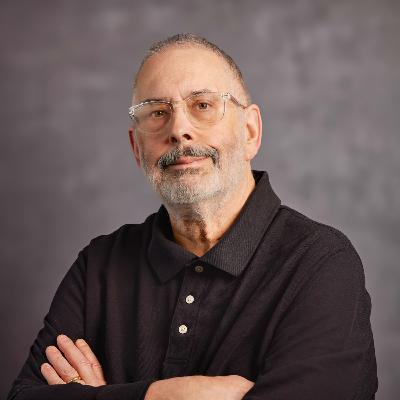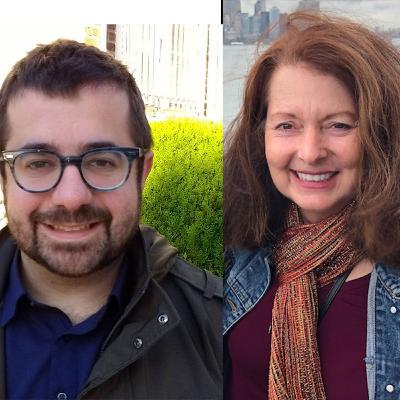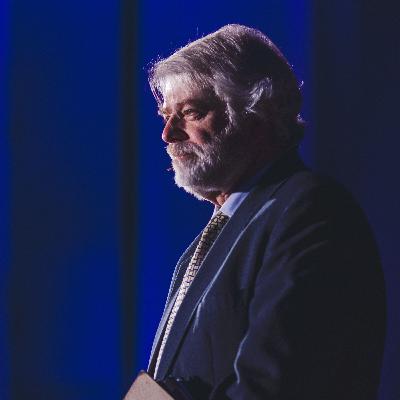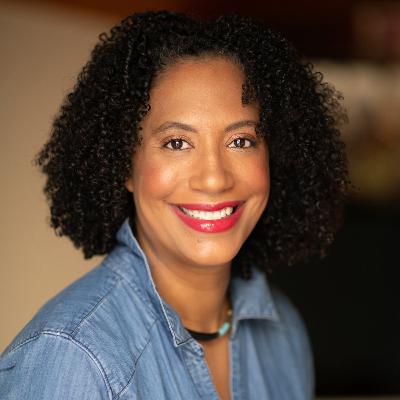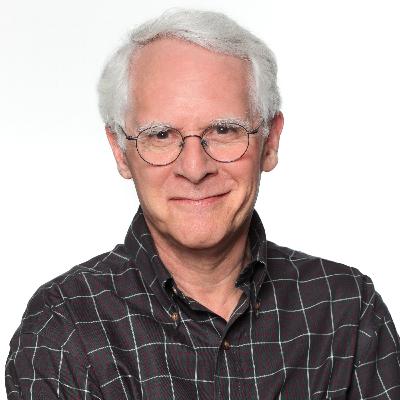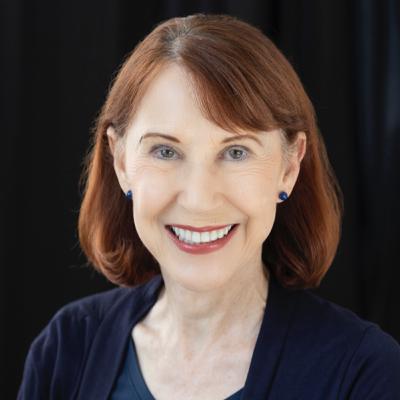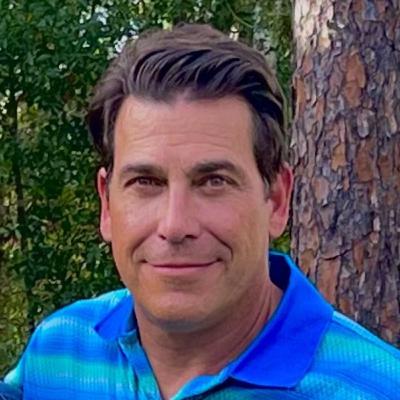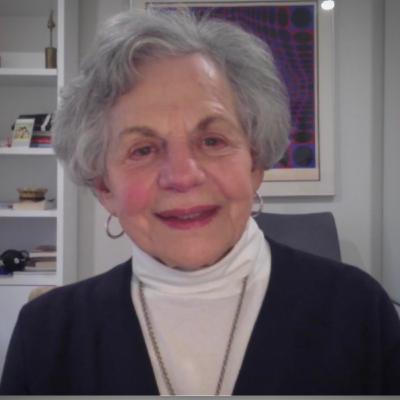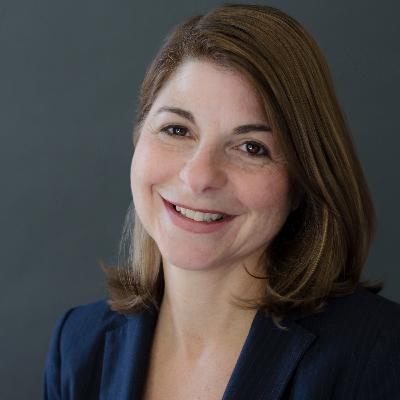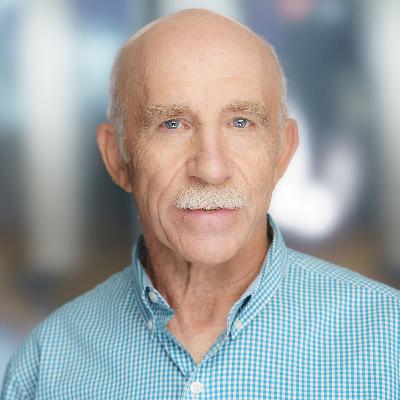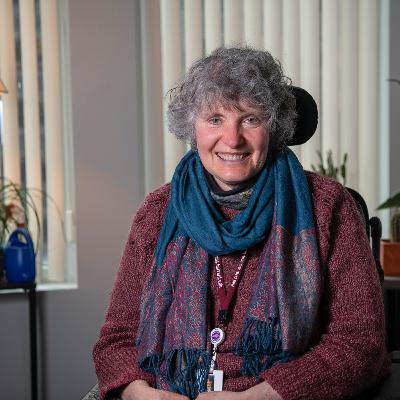Discover Specifically for Seniors - A New Direction
Specifically for Seniors - A New Direction

Specifically for Seniors - A New Direction
Author: Specifically for Seniors
Subscribed: 3Played: 25Subscribe
Share
© Specifically for Seniors
Description
Change is an integral part of growth, and as we progress, it becomes crucial to adapt and evolve. It is with great excitement that we announce the refocusing of our podcast, Specifically for Seniors. By refocusing the direction of the podcast, we invite individuals of all ages to join the conversation and embark on a lifelong journey of learning and connection. In this new direction, Specifically for Seniors, The Next Generation will not only cater to the interests of older adults but will also engage their children, grandchildren, and younger individuals who share a curiosity for life.
110 Episodes
Reverse
I was 6 years old when Voice of America first broadcast during World War II. It was established in 1941 initially focused on countering Nazi and Japanese propaganda during World War II and later played a significant role during the Cold War broadcasting to communist countries. Very recently, however, the White House moved to close down Voice of America to "ensure taxpayers are no longer on the hook for radical propaganda. "To get an up-close and personal view of what’s happening at VOA, we asked Steve Herman to be a guest on the podcast. Steven Herman is the chief national correspondent for the Voice of America. From 2017 to 2021, Steve was senior White House correspondent and subsequently VOA's White House bureau chief. Steve is the author of five books, the most recent of which is His latest, Behind the White House Curtain: A Senior Journalist’s Story of Covering the President — and Why It Matters, is a 2024 release from Kent State University Press.In our conversation, Steve and I discussed why the Voice of America was so vital and why it was supported by all American presidents for the past 80 years with the exception of the current president. We talked about the dedication and diligence of the 1300 employees of VOA who have been put on leave and the closure of VOA. Steve pointed out that since VOA was shuttered, the world now can only hear the voices of Moscow, Beijing Pyongyang and Tehran and the danger that causes. We discussed Steve's appearance on 60 Minutes and his book Behind the White House Curtain: A Senior Journalist's Story of Covering the President - and Why It Matters.Book Availability:https://a.co/d/6zaFTL8About the Bookhttps://www.c-span.org/program/book-tv/behind-the-white-house-curtain/643228
The news that the Trump administration plans to eliminate the Environmental Protection Agency's offices and the future implications of Trump's energy policies on the environment and climate led to my concern about how it will affect my children and grandchildren and yours. Because I didn't understand what all the implications could be and what we could do about it, I invited David Cain from the Citizens' Climate Lobby to talk with us about the organization, what it does, and how he became active in the CCL. We talked about what the Citizen's Climate Lobby is and its mission, its climate solutions and how to volunteer.Links:Citizens' Climate Lobbyhttps://www.citizensclimatelobby.orgPodcastshttps://www.youtube.com/@CitizensClimateLobbyMonthly Speakershttps://www.citizensclimatelobby.org/monthly-speakersWrite Congress to Protect NOAAhttps://community.citizensclimate.org/tools/protect-noaa#/152/Write Congress to defend the IRA (Inflation Reduction Act) climate provisionshttps://citizensclimatelobby.org/get-loud-take-action/protect-climate-ira/
One cannot turn on the news on TV or read a newspaper without hearing the words - Constitutional crisis. There's so much confusion about whether we are in a Constitutional Crisis or not, Professor Alexandra Keyssar rejoined the podcast to help us understand what a Constitutional crisis is and whether we are in one.Alexander Keyssar is the Matthew W. Stirling Jr. Professor of History and Social Policy. An historian by training, he has specialized in the exploration of historical problems that have contemporary policy implications. His book, The Right to Vote: The Contested History of Democracy in the United States (2000), was named the best book in U.S. history by both the American Historical Association and the Historical Society; it was also a finalist for the Pulitzer Prize and the Los Angeles Times Book Award. A significantly revised and updated edition of The Right to Vote was published in 2009. His 1986 book, Out of Work: The First Century of Unemployment in Massachusetts, was awarded three scholarly prizes. Keyssar is coauthor of The Way of the Ship: America's Maritime History Reenvisioned, 1600-2000 (2008), and of Inventing America, a text integrating the history of technology and science into the mainstream of American history. In addition, he has co-edited a book series on Comparative and International Working-Class History. In 2004/5, Keyssar chaired the Social Science Research Council's National Research Commission on Voting and Elections, and he writes frequently for the popular press about American politics and history. Keyssar's latest book, entitled Why Do We Still Have the Electoral College? (2020), is published by Harvard University Press.
There's an old Joke:What's the difference between ignorance and apathy?The answer: I don't know and I don't care.That pretty much sums up the way many of us feel right now.This podcast was recorded in mid- February, 2025 about a month after the inauguration of Donald Trump. In the few short weeks of his second term as president, he has fundamentally changed most of which we older adults have long considered the basis of our democracy - freedom of the press, birthright citizenship and three equal branches of government. He is attempting to cut off aid to foreign countries, drastically alter our concerns about climate change, pardon convicted insurgents , more than decimate the FBI and CIA, change the way we approach public health concerns, annex foreign countries, allow a select group of billionaires to make drastic changes to the way our government works and even wage war on paper straws.We re frustrated about our seeming lack of ability to do anything about it and to make our voices heard. So I invited Sam Daley-Harris, author of "Reclaiming Our Democracy: Every Citizen's Guide to Transformational advocacy" to help us learn how to make a difference.Throughout the last three years, Specifically for Seniors has attempted to bring conversations of interest, importance and just plain fun to you, our listeners. We have talked with artists, politicians, authors, physicians, historians, journalists, comedians, biologists, retirement experts, political activists and other podcasters.But in our more than 90 podcasts, we have never become actively involved in attempting to change our world. The current president and his sycophants, however, have forced Specifically for Seniors to change direction. We older adults must make our voices heard to create a better life for ourselves, our children, grandchildren and beyond.Specifically for Seniors hereby issues call to action, urging older adults to accept our responsibility as advocates to work toward transformational change in our communities, government , our world and in ourselves Important Links:Sign Up to Stay in Touch or Learn MoreReclaiming Our Democracy: Every Citizen's Guide to Transformational AdvocacyWhitehouse Comment LineIndivisibleMoms Demand Action Citizen’s Climate LobbyFriends Committee on National Legislation (FCNL)RESULTS.org
To be honest I should have titled this podcast -Surviving the Podcast Guests.Tune in and you'll understand why I said this.
Joel and Karmela Waldman are mother and son co-hosts of their True Crime podcast called Surviving the Survivor.
Joel worked most recently as a Washington, D.C.-based correspondent for Fox News, covering national politics from Capitol Hill. He has also worked as an investigative reporter for Fox 5 in New York City and for TV-news programs in West Palm Beach, Miami, and Tucson. He lives in Miami Beach with his wife, Ileana, and his three children, Vida, Zizi, and Juda.
Karmela is best known as Joel’s mom (Joel wrote this). But, she’s so much more!
A graduate of the University of Geneva, Karmela went on to get her masters in Social Work at Rutgers University. She’s both a licensed marriage therapist and Holocaust survivor. Hence, the podcast’s name, Surviving the Survivor.
Now from these guests you might have expected a pretty dry, uninteresting podcast, but it was one of those days everything went wrong technically - from inability to sign on to the recording program to improper syncing of voice and video and combined with Kamrela and Joel's senses of humor- leading to what I consider to be the best podcast we've ever done.
Link to the book Surviving the Survivor:
https://www.amazon.com/Surviving-Survivor-Conversation-Holocaust-Therapist/dp/B0D3VMVM2T/ref=sr_1_1?crid=HXLB1GUAAM7X&dib=eyJ2IjoiMSJ9.JUU8BPhBhkLxg5vwvT2fAruoEoGn-l57lLdHMVnAETMQsSQ7ScF2PbT9hdoUxo2ouuqrfBt4U2qxsdzWIdtgD4WcN-eiOrcNB6glvQ9FvVhagapRw98HCQp09RnddDM4ytVnk3oy5RGEtYGD-JzaImD7uTKkMmkz1QVonWX8csRffNMWkQbqPHBZUz3GqZ3vXyssJMnlL5wFsD-JiC1LpR88VPOYBi8iEy_ZRvh3GBA.JK4_ie9MiSOqy3V-k8G8YH8eFWu3H4aQxQTPtmJrqEg&dib_tag=se&keywords=surviving+the+survivor&qid=1733420176&sprefix=surviving+the+survivor%2Caps%2C131&sr=8-1
We've just been through an historic election and so we asked Bob Levey, a prize winning journalist who has covered the Washington scene since the Johnson administration to talk with us about it.
We talked about Bob's early years at The Washington Post and his currect column on the Senior Beacon Newspapers. Bob and I discussed the recent election, the job that both print and media did in covering the days up to the election, Bezos' refusal to endorse Harris and the problem with print endosements in general, the freedom of the press in the Trump administration and making peace with the election. On a lighter note, Bob talked about the game of bridge, folk singing and his novel, Larry Felder, Candidate.
This podcast was recorded during the part of the year in which the holiest of Jewish holidays takes place. It seemed appropriate to take some time to remember those of us who were lost during the Holocaust, but a part of the Holocaust many of us know little about,
This podcast contains a film by John Pollick:
(From the film's web page - https://www,beyondbabiyarmovie.com)
"Babi Yar, or Babyn Yar, is a ravine in Kyiv, Ukraine. On September 29th and 30th, 1941, Nazis forced 33,771 Jews into it and shot them.
The Nazis continued their campaign of mass shootings of Jews well beyond Babi Yar, extending through Ukraine, Belarus and other parts of Eastern Europe. This is how the Holocaust began. Although Nazis later engaged in industrialized killing, mainly in death and concentration camps in occupied Poland, an estimated 2.4 million, or 40%, of the 6 million Jews killed in the Holocaust died by shooting. They lie in thousands of mass graves across Eastern Europe, most of which, to this day, are unmarked, unprotected and desecrated.
The mass shootings occurred primarily in Ukraine. In Ukraine alone, it is estimated that 1,500,000 to 2,100,000 Jews were shot at approximately 2,000 execution sites across the country. The majority of these sites are unmarked and neglected, and the names of nearly half of the victims in them are unknown.
John Pollick is a lawyer in Illinois. The families of his maternal grandparents, immigrants from what is now Ukraine, were among the shooting victims. In 2014, after decades of searching for the mass grave in his grandmother's hometown, he learned that an organization called Yahad-In Unum had located it. He also learned that it was one of five sites, among thousands, selected to be protected and memorialized through a project called "Protecting Memory". In 2015, he and his daughter attended the dedication of the memorial there. While there, he learned of the full extent of the mass shootings and the profound neglect of both the execution sites and the shooting victims themselves.
Returning home, Mr. Pollick found that, like himself before "Protecting Memory", Americans were not properly educated about the shooting victims and their neglected graves. In 2019, to address this void, he returned to Ukraine to make a film showing the reality of these forgotten victims and their graves, as well as the changing attitudes of Ukrainians regarding them. These changing attitudes include a growing willingness to remember and honor these marginalized victims, and bury them with dignity. The process of doing so, however, has barely begun. Hundreds, if not thousands, of execution sites across Ukraine and Eastern Europe will be forever forgotten, together with the Jewish victims in them, unless these efforts are greatly and immediately expanded.
The purpose of the film is to educate viewers about these forgotten Holocaust victims and their neglected graves, and inspire action regarding them. After 80 years, it is time to finally address this enormous historical and humanitarian injustice in an open and comprehensive way, and begin to restore to the millions of shooting victims the dignity and respect they have been so long denied."
After the film, John and I talk about John's family's relationship to the killings, his involvement in making the film, and why he felt it was important to make the film. He also questions from members of the audience who viewed the film at Orchard Cove, a senior residence in the Boston area.
According to Senator Bob Casey, the ranking member of the special committee on aging , "The right to vote is one of the fundamental pilars of our democracy, but that right is under attack for millions of older Americans across the nation. Attempts to limit voting locations, the length of early voting periods, inaccessible voting locations, and new, strict voter identification laws threaten the hard won voting rights of older Americans."
So we invited Attorney Joan Bondareff to be our guest on Specifically for Seniors today to explain what can be done to make it easier for older adults to register and vote.
Attorney Bondareff is Special Counsel at Blank Rome Government Relations,LLC. She primarily focuses her practice on marine transportation, and environmental, regulatory and renewable energy legislative issues. Joan served as an adjunct professor at Georgetown Law School and as an adjunct professor at American University/Washington College of Law and is a member, American Bar Association Center for Excellence in Elder Law and Dementia.
Joan and I discussed the importance of the senior vote, the barriers to voting, specific issues for seniors in nursing facilities, congressional actions and what we can do to help older Americans to vote.
We all get them - those momentary lapses when we can't recall someone's name, why we came into a room or where we left the car keys. We call them senior moments, but are these moments inevitable or limited to seniors?
We'll learn more about these senior moments and how to work through them with our guest this week on Specifically for Seniors, Dr Stan Goldberg. Dr. Stan Goldberg is an expert in the areas of aging, human information processing, change, loss, and end-of-life issues. He is a Professor Emeritus in the Department of Speech, Language, and Hearing Sciences at San Francisco State University, and his writing has received 26 national and international awards.
We’ll be talking with Stan about his thoughts on Preventing Senior Moments and How to Stay Alert into Your 90s and Beyond - which is also the title of his latest book.
Book:
Preventing Senior Moments and How to Stay Alert into Your 90s and Beyond
Web Site:
https://stangoldbergwriter.com
Questions, comments, suggestions for future guests:
Https://www.specificallyforseniors.com/voicemail
My guest today on Specifically for Seniors is Emmy winner, international acclaimed journalist, executive producer, food and travel lover, and creator of the beloved groundbreaking show Diners, Drive-Ins & Dives, David Page takes us deep into the world of chefs, restaurateurs, and everything “foodie” on his new podcast Culinary Characters Unlocked, featuring incisive, entertaining and uninhibited conversations with culinary stars, future stars, as well as chefs and owners who run beloved local classics and mom-n-pop restaurants from coast to coast.
The podcast, premiering August 27th on Apple Podcasts, You Tube, and all other all major platforms as well as on culinarycharactersunlocked.com, will drop twice a week, on Tuesdays and Fridays.
Among the first guests are:
Dan Barber, multi-Michelin-starred chef at the forefront of the local food movement.
Nancy Silverton, legendary Los Angeles Michelin-starred chef who has been a pioneer in the California cuisine and artisanal bread movements.
Drew Nieporent, called by the New York Times, “the last old school restaurateur standing,” best known for partnering with Robert DeNiro on Nobu and the Tribeca Grill.
Adrian Miller, an award-winning culinary scholar who is one of the country’s leading authorities on Southern and African American foodways.
Christine Nguyen, James Beard award winning chef whose restaurants run the gamut from Vietnamese to South American.
Marvin Lender, who along with his brothers introduced non-New York America to bagels after figuring out how to mass produce and freeze them.
Page, a two-time Emmy winner, is best known for creating the Food Network hit Diners, Drive-Ins and Dives and executive producing the program for eleven seasons. His other entertainment/reality projects include syndicated and streaming series Beer Geeks, nominated for an Emmy as Outstanding Culinary Program, and multiple Food Network series including Outrageous Food, Tailgate Warriors, Al Roker’s Diner Destinations, and Al Roker’s Country Fest.
His prior television experience includes decades in network news at both ABC and NBC, covering some of the biggest stories on the planet (including walking through the Berlin Wall the night it opened) and control-room producing Good Morning America. Page is also an author, writing the award- winning book Food Americana about the creation of American cuisine from the foods of other countries and cultures.
My guests today on Specifically for Seniors caught my attention in an Opinion piece in the Washington Post. Professors Ben Katz and Pamela Teaster urged “an objective, scientific conversation about mental and physiological aging - both for our leaders and for the rapidly aging populations around the world” realizing that these conversations are both difficult and obligatory.
We’re going to try to at least open that conversation here on Specifically for Seniors, today.
Both Ben Katz and Pamela Teaster, are part of the faculty of Human Development and Family Science at Virginia Tech
Pamela Teaster is also director of the Virginia Tech Center for Gerontology and on the editorial board of the Journal of Elder Abuse and Neglect. She is a fellow of both the Gerontological Society of America and the Association for Gerontology in Higher Education. She is an active board member and former president of the National Committee for the Prevention of Elder Abuse.
My guest today on Specifically for Seniors is a practicing magician, but his story goes way beyond slight of hand and deceptions. Richard Hatch holds two graduate degrees in physics, but found it easier to apparently violate ther laws of physics than to discover them. Dick has always had a fascination with books on magic, but one book, in particular, led him a deeper understanding of the Jewish people during the holocaust.
Dick discovered and translated, from the German, a book entitled DIE JUDEN IN DER ZAUBERKUNDST - Jews in Magic published in Berlin in 1933 wirtten by a Jewish author named Gunter Damman. Researching the book, Dick, who is not Jewish, came to a deeper understanding of the plight of the Jewish people during the holocaust which we talk about during the podcast.
This is a story you have not heard about the holocaust and one that you must hear.
An unfortunate fact of life at our age is that sooner or later we are going to face a hospital admission whether due to an illness, an injury or pain, and that can be confusing and frightening. Many of us need help in preparing for an Emergency Room and/or hospital visit. Once in the hospital learning how to navigate hospital care and advocate for ourselves is essential
So I called on Dr. Monique Nugent, author of Prescription for Admission: A Doctor's Guide for Navigating the Hospital, Advocating for Yourself and Having a Better Hospitalization for advice.
Dr. Nugent is a praciticing hospitalist and Associate Director for the Division of Hospital Medicne at South Shore Hospital in Weymouth, MA. She completed her medical school training and residency training at Loma Linda University Medcal Center in southern California and completed her Master in Public Health at the Harvard Schoo f Public Health.
Dr. Nugent and I talk about what to do before you face a hospital admission and how to advocate for yourself once in the hospital. Her well-organized book is essential readng for older adults.
Book is available everywhere books are sod and at Amazon.
Prescription for Admission
My guest today on Specifically for Seniors is a practicing Rabbi and stand-up comedian. Bob Alper has been seen on Good Morning America, Showtime, The BBC, CNN and was featured on Extra, TV’s top rated entertainment program, immediately following a segment on the size of Jennifer Lopez’s butt.
Bob and I talk about how a Rabbi got started as a stand-up comedian, why he feels that humor is holy, hs 'gentle' humor, his book - Life Doesn't Get Any Better Than This - and how his father used to shower with the lady next door.
Bob talked about performing and explained several of his programs - The Spirituality of Laughter and his Laugh in Peace Tour where he performs with Christian and Muslim comedians.
Bob enlightened me on Albana's role in saving Jews during the holocaust and how Albania was in contention for becoming a Jewish state.
We got serious at the end of the podcast about the war n Gaza, anti-semitism and the pro-palestinian protests in New York City.
Books:
Life Doesn't Get Any Better Than This: The Holiness of Little Daily Dramas
Thanks I Needed That
I have a friend who just celebrated his 100th birthday. He was a bombadier during World War II. He is in great physical ad mental health, has written a play about his experiences and is trying to cast that play at the senior residence he considers home. This got me wondering if there was a way that more of us could live well into old age, so I called on Noelle Nelson, PhD author of “The Longevity Secret, How to Live Happy, Healthy & Vibrant Into Your 70s, 80s, 90s and Beyond” for the answer.
Noelle has appeared on national and international radio, television and podcasts including CBS’s “The Early Show,” ABC’s “The View,” and CNN. She has been interviewed, quoted or written about in such diverse media as Parade,” “Living to 100 Club” Podcast, Inc., People, Woman’s World, UpJourney and the Stories of Inspiring Joy. Dr. Nelson holds advanced degrees in clinical psychology from the United States International University, and sociology degrees from the University of California at Los Angeles and the Sorbonne in Paris, France.
Noelle and i talked about the secret to living well and the one word that sums up her findings. To learn the secret, tune into this podcast.
One of the best parts of doing this podcast is that it gives me the opportunity to meet and talk with some remarkable people who've done exceptional things after retirement. Chad Richardson was a Detroit police officer who gave himself the gift of filmmaking when he retired from law enforcement. On today's episode of Specifically for Seniors takes us on his journey to fulfill his dream after retirement.
Chad and I talk about his movie Bad Senator and the more than 200 seniors who volunteered in the film as well as the retirement community where it was filmed. Be sure to check out the film trailer for Bad Senator in the podcast.
Maggie Scarf is a former visiting fellow at the Whitney Humanities Center, Yale University, and a fellow of Jonathan Edwards College, Yale University. She was for many years a Contributing Editor to The New Republic and a member of the advisory board of the American Psychiatric Press.
Maggie is the author of seven books for adults and two books for children. She s the recipient of numerous awards and fellowships, including a Ford Foundation Fellowship and a Nieman Fellowship in Journalism at Harvard. She has received several National Media Awards from the American Psychological Foundation. Her articles have appeared in the New York Times, The New Republic and Psychology Today
She has appeared on many television programs, including Oprah, Today Show, Good Morning America, CBS News, and CNN, and has been interviewed extensively on radio and for magazines and newspapers across the nation.
Maggie's books include the acclaimed New York Times bestsellers Unfinished Business: Pressure Points in the Lives of Women and Intimate Partners: Patterns in Love and Marriage. Body, Mind, Behavior (a collection of essays, most of them first published in The New York Times Magazine); Intimate Worlds: How Families Thrive and Why They Fail; Secrets, Lies, Betrayal: How the Body Holds the Secrets of a Life, and How to Unlock Them; and, most recently, September Songs: The Bonus Years of Marriage.
Maggie and I talk about her life and career, her books, and the Supreme Court.
There is an organization in Massachusetts that is focused on caring for an aging population, that develops services that meet older adults’ needs and preferences and advocates for us. I had not heard of this organization before so we invited Elissa Sherman, the President of LeadingAge Massachusetts. to explain it to us.
Dr. Sherman has worked in aging policy for more than 30 years, beginning her career in state government as an analyst for the Massachusetts state legislature’s Joint Committee on Human Services and Elderly Affairs and later working at the Commonwealth’s Executive Office of Elder Affairs where she was involved in the development and implementation of regulations governing assisted living. She joined LeadingAge Massachusetts (then called MassAging) in 1998 as Director of Public Policy and has overseen the Association’s public policy and government relations work since that time.
During her tenure at LeadingAge Massachusetts, Dr. Sherman has brought the voice of not-for-profit aging service providers to the development of state policy through her work leading the Association’s advocacy activities, and through her involvement on numerous state advisory boards.
Dr. Sherman completed her PhD in Social Policy at the Heller School at Brandeis University and received her Bachelor’s degree from the University of Vermont.
Elissa. and I discuss Leading Age Massachusetts and the services it provides both for not-for-profit organizations and consumers alike.
Rick Mater is a longtime runner and Emmy-nominated TV executive living in Los Angeles. He was born in Pinner, England, and grew up in California, New Jersey, and Munich, Germany.
A miler in high school, he lettered in cross-country in college and has run the Grand Canyon twice as a cardiac patient. A heart attack survivor, he has four stents in his left anterior descending artery and a defibrillator implanted in the side of his chest. He is the author of Six Hours: Running for My Life in the Grand Canyon.Rick and I talk about overcoming medical problems and facing the challenge of a 17 mile run in the Grand Canyon - twice.
Rick's books:
Beat - https://www.amazon.com/Beat-Richard-Lewis-Mater/dp/1736823019
Six Hours: Running for My Life in the Grand Canyon - https://www.amazon.com/Six-Hours-Running-Grand-Canyon-ebook/dp/B0BGQNPWMK/ref=sr_1_1?crid=39ETR5NAJTFZ3&keywords=beat+by+rick+mater&qid=1707662706&sprefix=beat+by+rick+mater%2Caps%2C84&sr=8-1
As many of us age we develop physical problems, we have difficulty seeing, hearing and mobility. We require a walker, wheelchair or motorized device to get around. And we feel that our physicians don’t understand our problems. So we asked Dr. Lisa Iezzoni to be a guest on the podcast to help us work through the challenges we face.
Lisa I. Iezzoni, MD, MSc is Professor of Medicine, Harvard Medical School, and based at the Health Policy Research Center, Mongan Institute, Massachusetts General Hospital. Her research for the past 25 years has focused on improving the life experience of people with mobility disability.
Dr. Iezzoni has conducted numerous studies examining the health care experiences of persons with disability. She has also explored home-based supportive services; her book Making Their Days Happen: Paid Personal Assistance Services Supporting People with Disability Living in Their Homes and Communities was published in 2022. During the 2022-2023 academic year, she was the Sally Starling Seaver Fellow at the Harvard Radcliffe Institute. Dr. Iezzoni is a member of the National Academy of Medicine in the National Academies of Sciences, Engineering, and Medicine.
Dr. Iezzoni and I discuss her disability and use of a wheelchair for the past 47 years, we talk about her career and research, the problems of independent living with a disability, health disparities, and the fact that many physicians are reluctant to trreat patients with a disability. We also discuss the problems of getting good dental care. We talk about the contents of her book - Making Their Days Happen: Paid Personal Assistance Services Supporting People with Disability Living in Their Homes and Communities.
We close with a discussion of a phrase she used in a previous podcast - "OK, what can I do to make that person's life better?
Book Available at:
https://www.amazon.com/Making-Their-Days-Happen-Communities-ebook/dp/B09KQ5LVML/ref=sr_1_1?crid=1GHX8CLXARWQA&keywords=making+their+days+happen&qid=1707093399&sprefix=makingg+their+days+happen%2Caps%2C90&sr=8-1



